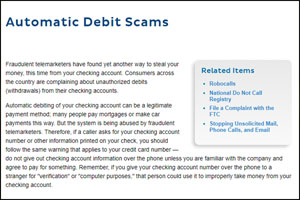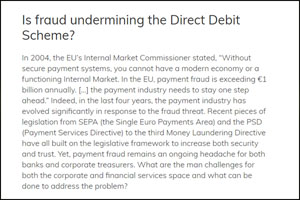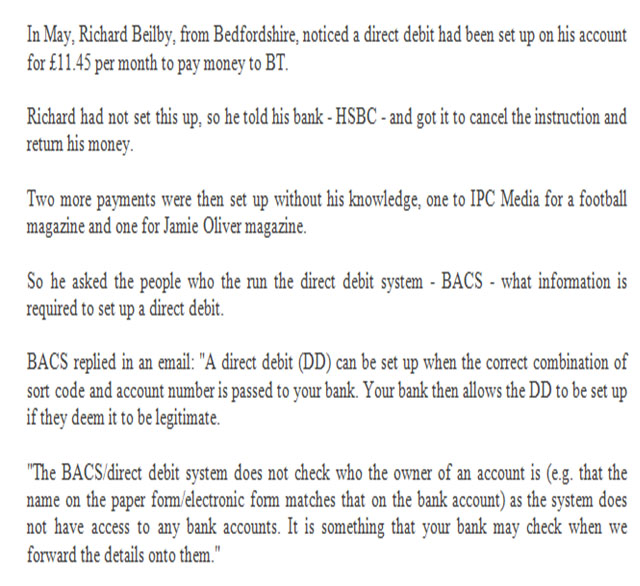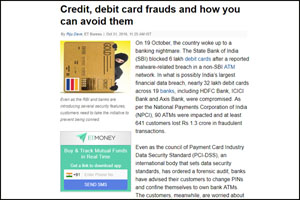Direct Debit Scams
What are direct debits?
Direct debits are transactions that occur when the correct combination of sort code and account number is entered for a particular account. No additional verification is required to set up a direct debit. Once initiated, the amount is automatically deducted from the account and credited to the requested recipient—without any further confirmation from the account holder. These are automated electronic transfers that authorize payments without the need for a signature, especially when set up as paperless direct debits. Unfortunately, this convenience comes with a downside: very little security is involved in the initial setup, making it vulnerable to abuse.
How is a direct debit set up?
A direct debit can be set up if someone has access to the following details:
-
✅ Your account number
-
✅ Your account name
-
✅ Your sort code
-
✅ The address of your bank
Once these pieces of information are provided, a direct debit can be authorized—often without further authentication.

What happens in a direct debit scam?
Direct debit comes with a guarantee that you won’t lose money if any mistakes occur in the system. But what happens when someone tries to scam you?
Many users report discovering that a direct debit has been set up on their account without their knowledge—and certainly not by them. Several reputed banks have flagged such cases as high-priority issues, recognizing the need to address and protect client interests.
A direct debit scam often begins when a small credit, sometimes as little as one cent, is deposited into the target’s bank account. This credit is typically accompanied by a six-digit code. If the bank confirms this code, it enables direct debits to be drawn from that account. Scammers exploit this by using deceptive techniques to hack into internet banking portals and retrieve the code—allowing them to initiate unauthorized debits from the victim’s account.


A number of cases have been reported where users report direct debits being initiated without their knowledge.
Below is one such example from an HSBC bank customer who noticed direct debits set up on his account without his knowledge.
It happened twice, which is when he realized that someone had set up a direct debit on his account without his knowledge.

Tips to beware of direct debit scam:
-
It is always a best practice to cross-check every transaction happening from your bank account.
Never agree to allow direct debits to your customers' accounts too.
Any small credit to your account from any unknown source should be cross-checked twice. It is only in such cases where direct debit scams are initiated by fraudsters.
Demand regular statements from your bank. This will help you maintain a clear record of every incoming and outgoing transaction from your account.
The direct debit scam is another fraudulent activity carried out by scammers. Users need to keep themselves updated on such money-swindling techniques used by scammers.





